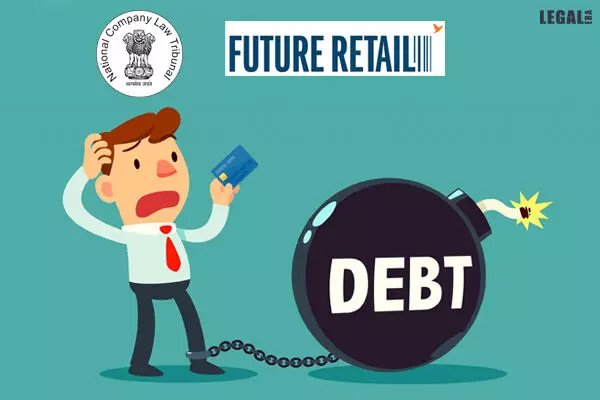- Home
- News
- Articles+
- Aerospace
- AI
- Agriculture
- Alternate Dispute Resolution
- Arbitration & Mediation
- Banking and Finance
- Bankruptcy
- Book Review
- Bribery & Corruption
- Commercial Litigation
- Competition Law
- Conference Reports
- Consumer Products
- Contract
- Corporate Governance
- Corporate Law
- Covid-19
- Cryptocurrency
- Cybersecurity
- Data Protection
- Defence
- Digital Economy
- E-commerce
- Employment Law
- Energy and Natural Resources
- Entertainment and Sports Law
- Environmental Law
- ESG
- FDI
- Food and Beverage
- Gaming
- Health Care
- IBC Diaries
- In Focus
- Inclusion & Diversity
- Insurance Law
- Intellectual Property
- International Law
- IP & Tech Era
- Know the Law
- Labour Laws
- Law & Policy and Regulation
- Litigation
- Litigation Funding
- Manufacturing
- Mergers & Acquisitions
- NFTs
- Privacy
- Private Equity
- Project Finance
- Real Estate
- Risk and Compliance
- Student Corner
- Take On Board
- Tax
- Technology Media and Telecom
- Tributes
- Viewpoint
- Zoom In
- Law Firms
- In-House
- Rankings
- E-Magazine
- Legal Era TV
- Events
- News
- Articles
- Aerospace
- AI
- Agriculture
- Alternate Dispute Resolution
- Arbitration & Mediation
- Banking and Finance
- Bankruptcy
- Book Review
- Bribery & Corruption
- Commercial Litigation
- Competition Law
- Conference Reports
- Consumer Products
- Contract
- Corporate Governance
- Corporate Law
- Covid-19
- Cryptocurrency
- Cybersecurity
- Data Protection
- Defence
- Digital Economy
- E-commerce
- Employment Law
- Energy and Natural Resources
- Entertainment and Sports Law
- Environmental Law
- ESG
- FDI
- Food and Beverage
- Gaming
- Health Care
- IBC Diaries
- In Focus
- Inclusion & Diversity
- Insurance Law
- Intellectual Property
- International Law
- IP & Tech Era
- Know the Law
- Labour Laws
- Law & Policy and Regulation
- Litigation
- Litigation Funding
- Manufacturing
- Mergers & Acquisitions
- NFTs
- Privacy
- Private Equity
- Project Finance
- Real Estate
- Risk and Compliance
- Student Corner
- Take On Board
- Tax
- Technology Media and Telecom
- Tributes
- Viewpoint
- Zoom In
- Law Firms
- In-House
- Rankings
- E-Magazine
- Legal Era TV
- Events
NCLT reserves insolvency proceedings order against Future Retail

NCLT reserves insolvency proceedings order against Future Retail
Amazon had tried to block its deal with Reliance by obtaining a freeze order from the Singapore arbitration court
The Mumbai bench of the National Company Law Tribunal (NCLT) has reserved its orders on admitting debt-laden Future Retail into the bankruptcy process.
In April, a consortium of lenders, led by Bank of India, had filed the insolvency application seeking claims of Rs.5,322.32 crores from Future Retail as of 31 March.
(Legally, the court reserved its order means that the judge has heard oral arguments from the two parties. But rather than reaching an immediate decision, the verdict would be announced later at an unspecified date).
At the hearing, Zal Andhyarujina, the counsel for Amazon, reiterated that the Bank of India's petition to initiate insolvency proceedings against Future Retail was malicious.
He alleged that lenders to Future Retail, including Bank of India, Union Bank of India, State Bank of India, Bank of Baroda, and IDBI Bank, were colluding with Future Retail by initiating the sale of the distressed company's assets to Reliance Retail.
During the previous hearings, the Bank of India had argued that the parameters under the law to admit insolvency proceedings against Future Retail were "fully and wholly" satisfactory.
In a stock exchange filing in April, Reliance Industries had said the $3.4 billion deal to take over the retail assets of Future Retail could not be implemented because the company's secured creditors had "voted against the scheme."
While over 75 percent of Future Group's shareholders and unsecured creditors had voted in favor of the deal with Reliance, 69.29 percent of secured creditors rejected the deal, and the remaining 30.71 percent voted in its favor.
In 2019, Amazon invested $200 million in Future Coupons for a 49 percent stake, by virtue of which the US company got a 7.3 percent foothold in Future Retail.
Amazon, an investor in Future Group's gift voucher unit Future Coupons, tried to block the deal by obtaining a freeze order from the Singapore arbitration court.



